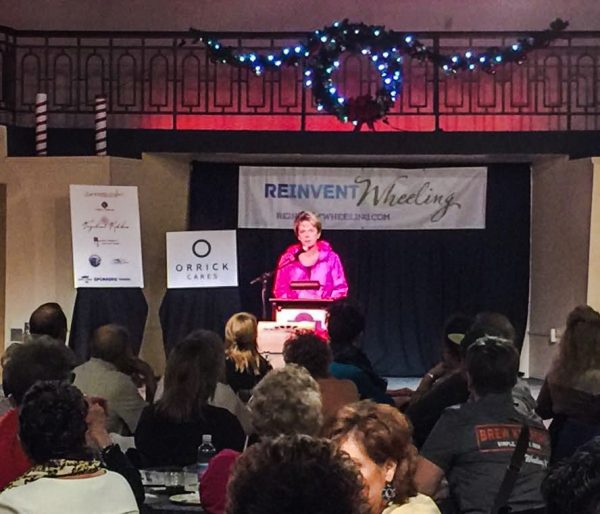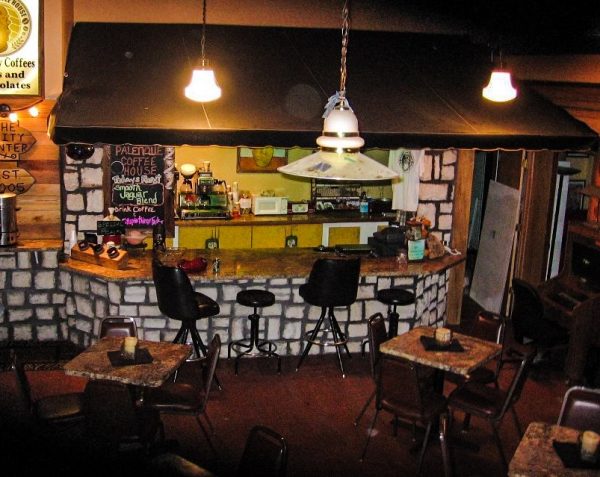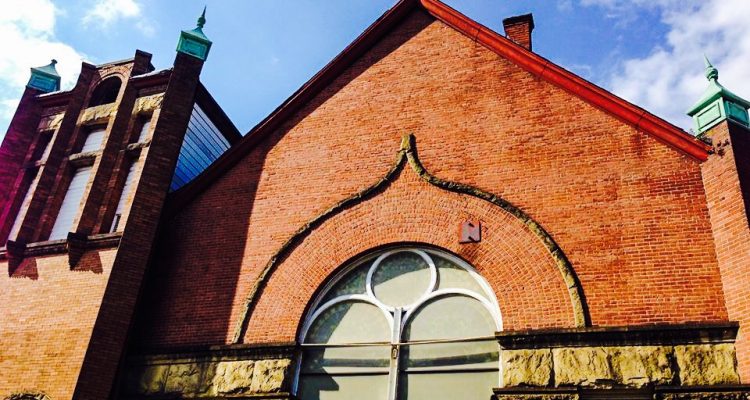She is involved because it is where life led her, and now Wheeling resident Diana Mey is doing what she can to raise awareness about a sanctuary that her family found in order to deal with the realities of addiction.
Mey, the founder of the Wheeling Skate Park and a national consumer advocate who has waged a successful war against the telemarketing and debt-collection industries, is a board member for the Unity Center in Center Wheeling, a facility where12-step meetings are offered free of charge for those searching support during their respective recoveries from one of several forms of addiction plaguing the Upper Ohio Valley at this time.
“It is most definitely the truth that addiction has touched almost everyone in this Valley is some way, shape, or form, and I believe most people realize that whether they want to or not,” May said candidly. “If you think your life hasn’t been touched yet, it’s probably because you are not aware of it yet. People can hide it pretty well until they can’t any longer.

“When that time arrives, families sometimes break apart. Sometimes people end up dead because of an overdose,” she said. “There have been times when families refuse to address a problem because of disbelief. It really just depends on the individual situation because every story is different.”
The Unity Center operates seven days per week and is located inside a former church at 2314 Chapline St. The hours of operation depend on the times of the 15 different 12-step meetings that take place each week. One may call the Unity Center at 304-232-3888.
“The Unity Center is a very safe place that’s that’s celebrating its 10th anniversary right now,” Mey said. “There are as many as 300 to 350 people who walk through those doors each week for the peer-to-peer meetings, so that should indicate to anyone how necessary having such a place is to this area.
“It is place for people to come and be with like-minded people depending on your reasons and what meetings you are attending. And it’s very important for the Unity Center to be there for the people who need it during the time of year when we are celebrating a lot of holidays because there are families who are not yet ready to welcome them back in,” Mey explained. “It’s a sober place that has free Wi-Fi, big-screen TVs, and a very nice environment for those who are in recovery and looking for the support that a recovering addict needs. And right now we have an immediate need for help with paying our utility bills and, even though it’s mid-December, we’re still not into the coldest months of the year.”

There is no fee charged those attending the meetings or visiting for a chance to socialize with others, but the reality is that the center’s board of directors must pay the bills to remain open.
“The Unity Center’s only income is generated by donations from supporters, and each 12-step meeting is asked to make a voluntary rent contribution,” Mey said. “The family support meetings that I attend there meet each week, and I know I donate after each one of those meetings.
“Now that doesn’t amount to the amount of money that is needed to pay for everything that’s needed to keep the center open so yes, we do depend on members of the community supporting what takes place there each day and evening,” she explained. “To keep those doors open each month takes about $1,600, so I am hopeful that more people will step forward to help because the addiction problems in the Upper Ohio Valley continue to be an issue.”
Mey reminds those interested in making contributions that every dollar donated represents a tax deduction.
“It’s our hope that people in this area will realize the importance of what takes place at the Unity Center and that they will find it in their hearts to offer us what they can at this time,” she said. “The Unity Center is a certified 501-c-3, so everything is recorded properly, so every dollar donated is tax deductible.
“Not only do we need some financial assistance, but it is also a goal of ours to raise awareness about what we do only a daily basis because of how important an issue addiction is right now,” she continued. “Making the decision to get off the drugs is huge, and finding a rehabilitation center can be very difficult. But once those steps are taken, support is critical.”
Individuals can choose from a number of different ways to contribute what they can, including options involving going online (http://www.ohiovalleyrecovery.org), delivering donations to the center, and the U.S. Postal Service.

“And, if someone has a donation they want to make and they wish to get in touch with me directly, that would be fine, too. I’d be happy to come meet you and pick it up,” Mey said. “If we can’t pay the utility bills, we cannot keep the building open, and we are exploring grants on the federal and state levels, and there are funds out there that we may be able to acquire. But that’s down the road. Our needs today are very much immediate.”
She discovered the Unity Center because a family member struggled with addiction at one time, and she searched for a safe haven in which she could relate to others experiencing the same difficulties. Each Sunday she continues to attend family-support meetings because of the peace that can be found by doing so.
“Those meetings are for family members who have a loved one who has experienced addiction is some way,” Mey explained. “It meets every Sunday, and it’s full of parents, siblings, friends, and significant others, and they all come to share their experiences so that others there may begin to understand more and more. We also have our own 12-step program to navigate as we all try to figure out our situations.
“One of the key things is that you have the chance to talk with people who have gone through many of the same things like the chaos and the roller-coaster ride that you can experience when you have a loved one that is in active addiction,” she continued. “Frankly, it’s unlike anything that you can ever experience, and sometimes you feel very isolated. It’s hard to believe that anyone else can possibly fathom what you are going through. That’s what this group is all about.”
When asked, Mey accepted a position on the Unity Center’s board of directors simply because of the assistance she and her family have savored, and it is also why she has decided to fight for the facility’s future by appealing to the public for the financial assistance needed to keep it open for those currently seeking support and for those who inevitably will in the future.
“You get the tools that you need to feel at peace with yourself, and you also learn to stop enabling your loved one who is addicted. That’s one of the hardest things to learn because you always want to fix things for your loved one,” Mey said. “But in situations like addiction you have to learn that it’s something that you cannot fix.
“You learn that there’s only one person you can change, and that’s yourself,” she said. “No matter what you try to do for your loved one, you also learn that they are the only ones who can change themselves. As a family member, you literally get sick, but my family has been helped a great deal, and it’s taught the importance of having such a great place within your community.”
(Photos provided by the Unity Center)


